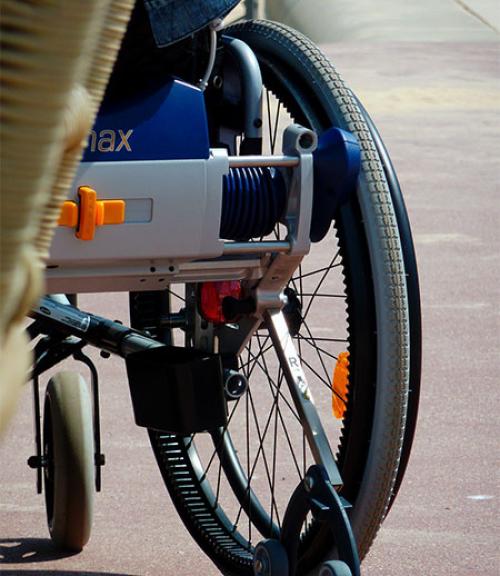This is an episode in the “What Makes Us Human?” podcast from Cornell University’s College of Arts & Sciences, showcasing the newest thinking from across the disciplines about what it means to be human in the twenty-first century. Featuring audio essays written and recorded by Cornell faculty, the series releases a new episode each Tuesday through the fall.
My experience with disability began early: at age 16 I got my first job as a psychiatric attendant in a hospital for persons with severe chronic mental illness. It was also the year that my youngest brother, a person with Down Syndrome, was born. These experiences put me on a path to what became both a personal and professional passion, and brought me to where I am today.
People with disabilities are a significant part of the world’s population – 15% of us, or fully one billion people. Disability is a natural part of the human experience across the globe, regardless of gender, race, ethnicity, religion, sexual preference or orientation. Disability is an experience that permeates the human condition and is integral to the human experience. But people with disabilities are often seen as “different from” the norm of what it means to be human, and as a result are marginalized in their societies. Historically, people with disabilities have not had equal opportunities for employment, civic participation, or social and economic well-being. In the U.S., working-age people with disabilities are half as likely to be employed as their nondisabled peers.
Historical prejudice against people with disabilities is slowly changing. In 2008, the U.N. passed a Convention on the Rights of Persons with Disabilities, and many countries around the world have ratified it, as well as passed their own laws to protect the rights of individuals with disabilities to full participation in their respective communities.
At the Yang-Tan Institute, which is part of Cornell University’s Industrial and Labor Relations School, we conduct research on workplace disability inclusion. Not surprisingly, we have found that companies that demonstrate proactive employment nondiscrimination policies and practices are significantly better at recruiting individuals with disabilities than those without.
One interesting and significant recent initiative we have seen in technology and technology-intensive companies is the proactive hiring of individuals on the Autism Spectrum. Some individuals with Autism demonstrate a rigorous attention to detail and the ability to see patterns, which may make them particularly well-suited for positions as testers, code debuggers, and cyber security jobs. This is a great example of how a difference or deviation from the norm, which often results in bias and marginalization by society, can actually be an asset.
This is one example that can push us to think about how we might give all of humanity the well-deserved opportunity to identify and contribute their unique assets to the world. Such opportunities engage people more fully and equitably in their communities, while also enabling society to benefit from the beauty and value of our many diverse ways of being human.
More "What Makes Us Human" podcasts are available on iTunes and Soundcloud.




